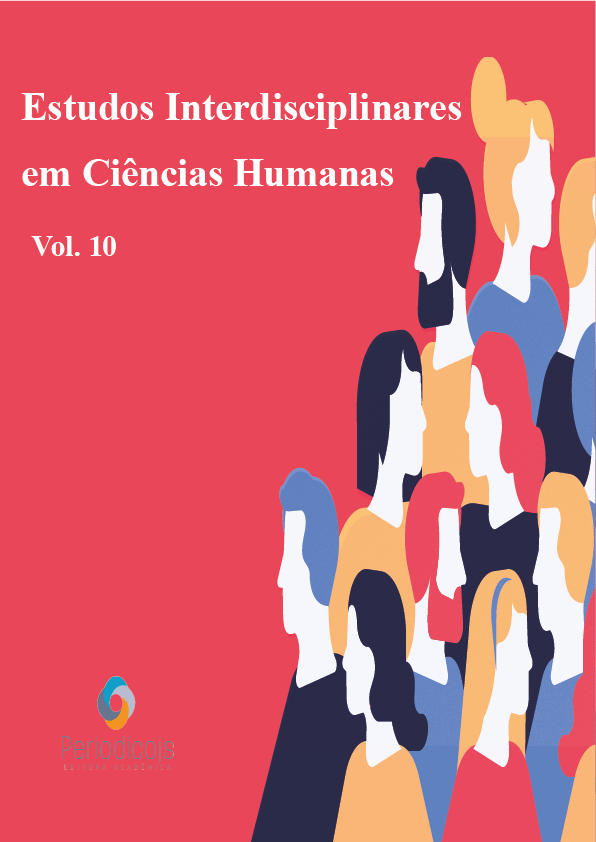Abstract
Human society was built and went through different transformations until reaching the level of discussion that we present today. And social organization is coordinated by different sectors, among them we have the citizen behavior control system. Therefore, the main objective of this research is to verify the relationship between the factors that influence the application of the restrictive sentence and its consequences for the citizen resocialization strategy, breaking it down into two important points and presented in three specific objectives relating these two themes. . The main results try to highlight the importance of applying an alternative that is applicable in situations where the objective of citizen resocialization is achieved. The conclusion aims to highlight that the main lack of management of the system associated with the construction of a discriminatory path for the population is the main factor in this failure.
References
DORNELLES, J. R. W. (2003). Conflitos e Segurança: entre Pombos e Falcões. 1ª ed. Disponível em: <>. Acesso em: <>;
BATISTA, N. (2007). Introdução Crítica ao Direito Penal Brasileiro. 11ª ed. Rio de Janeiro: REVAN;
BATISTA, Vera Malaguti. Introdução crítica à Criminologia Brasileira. Rio de Janeiro: Revan, 2011.
BITENCOURT, C. R (2011). Falência da pena de prisão: causas e alternativas. 4. Ed. São Paulo: Saraiva.
BRASIL, Constituição de 1996 - Casa Civil. Código Penal. LEI Nº 9.426, DE 24 DE DEZEMBRO DE 1996. Art. 180º. Disponível em: < http://www.planalto.gov.br/ccivil_03/leis/l9426.htm>. Acesso em: 13 jun 2021;
CASTILHO, A. F. A. N.; SANTOS, J. E. L. (2015) PENA RESTRITIVA DE DIREITOS E A REINTEGRAÇÃO DO CONDENADO REGRAD, UNIVEM/Marília-SP, v. 8, n. 1, p. 150-170, agosto;
CONDE, F. M; HASSEMER, W (2008). Introdução à Criminologia. Rio de Janeiro: Lumen Juris.
CONDE, F. M; HASSEMER, W. Introdução à Criminologia. Rio de Janeiro: Lumen Juris, 2008;
CRAVEIRO, Gisele da Silva ; MACHADO, Jorge A. S.; ANGELICO, Fabiano ; MARTINS, Paula (2017) Desafios da transparência no sistema de justiça brasileiro. 2. ed. (com análise das entrevistas). COLAB: São Paulo. 199p. Online: http://www.forum- global.de/docs/Transparencia_no_Sistema_de_Justica_do_Brasil_2ed_com_entrevistas.pdf . Acesso em: 22 jun. 2021.
DASSI, A.L.M. (2013). PENA DE PRISÃO E A REALIDADE CARCERÁRIA BRASILEIRA: UMA ANÁLISE CRÍTICA. Disponível em: <http://www.publicadireito.com.br/conpedi/manaus/arquivos/anais/bh/maria_angelica_lacerd a_marin_dassi.pdf >. Acesso em: 23 jun 2021.
FERRAJOLI, L. (2002). Direito e Razão: Teoria do Garantismo Penal. Ed. Revista dos Tribunais. 2ª ed.
FOUCAULT, Michel. Vigiar e Punir. 36.ed. Petrópolis: Vozes, 2009.
GROKSKREUTZ, H. R. (2010). Das teorias da pena no Ordenamento Juridico brasileiro. Âmbito Jurídico, Rio Grande, jul. Disponível em: <http://www.ambito- juridico.com.br/site/index.php?n_link=revista_artigos_leitura&artigo_id=7815>. Acesso em : 24 jun. 2021;
MACHADO, M.R.; PIRES, A.P.; FERREIRA, C.C.; SCHAFFA, P.M. (2009). complexidade do problema e a simplicidade da solução: a questão das penas mínimas. Disponível em: <http://pensando.mj.gov.br/wp- content/uploads/2015/07/17Pensando_Direito3.pdf >. Acesso em: 23 jun 2021;
MELOSSI, Dario; PAVARINI, Massimo. The prisonandthefactory: originsofthepenitentiary system. trad. GlynisCousin. London: Macmillan, 1981. [MELOSSI, Dario; PAVARINI, Massimo. Cárcere e fábrica: as origens do sistema penitenciário (séculos XVI-XIX). Tradução de Sérgio Lamarão. Rio de Janeiro: Revan, 2006. Coleção Pensamento Criminológico. Disponível em: <>. Acesso em: 25 jun. 2021.
NERY, D. C. P. (2012). Teorias da Pena e sua Finalidade no Direito Penal Brasileiro. Universo Jurídico, Juiz de Fora, jun.. Disponível em: <http://uj.novaprolink.com.br/doutrina/2146/teorias_da_pena_e_sua_finalidade_no_direito_p enal_brasileiro >. Acesso em: 23 jun. 2021.
NÓBREGA-THERRIEN, S. M.; THERRIEN, J. (2011). O estado da questão: aportes teórico-metodológicos e relatos de sua produção em trabalhos científicos. In: FARIAS, I de; NUNES, J. C.; NÓBREGA-THERRIEN, S. M. (Orgs.) Pesquisa científica para iniciantes: caminhos no labirinto. Fortaleza: EdUECE, 2011, p.33-51 (vol. I).
PIRES, Álvaro (2004), “A racionalidade penal moderna, o público e os direitos humanos na modernidade tardia”, Novos Estudos CEBRAP (São Paulo), 68, 2004, pp. 39-60;
QUEIROZ, P. S. (2002). Do Caráter Subsidiário do direito Penal: Lineamentos para um Direito Pena Mínimo. 2ª ed. Disponível em: <>. Aceso em: ;
WACQUANT, L. (2001).. As prisões da miséria. Rio de Janeiro: J. Zahar, ZAFFARONI, Eugenio Raúl (2012). Em busca das penas perdidas. 5.ed. Rio de Janeiro: Revan. Disponível em: <>. Acesso em: 23 jun. 2021





